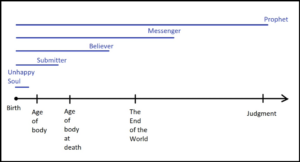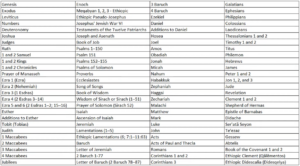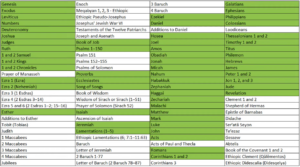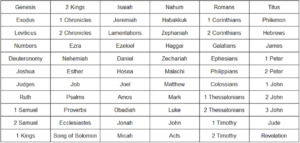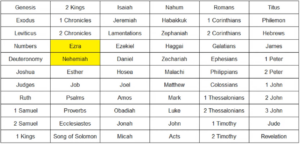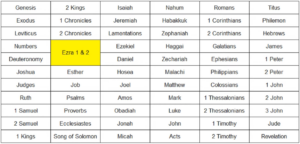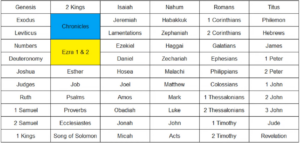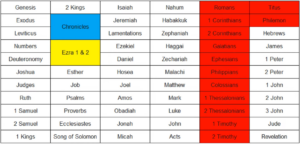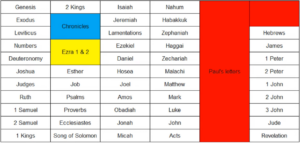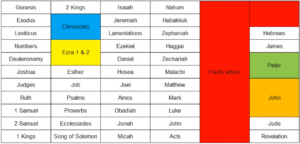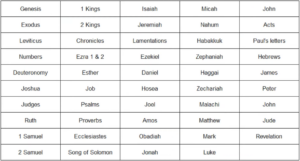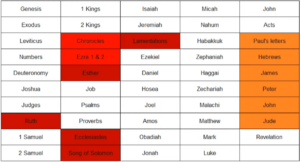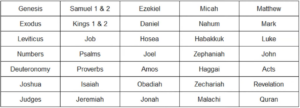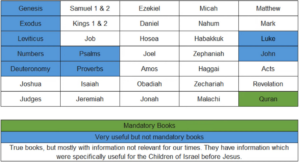Praise be to God. There is no other god except God. I’ve been working on a video clarification about Marriage and Divorce for quite some time now, and for some time I also thought that I might deal with the topic of “Dating” in that video, but because I could not explain this topic without including my personal opinions, I had to remove it from there, but it’s an important topic anyway as a Friday Sermon, especially for the youngsters of today. So, let me get to the point. To help marriages or engagements and decrease the chances of divorce or breaking up the engagement, dating is allowed before marriage or engagement, but only what I call “Dating for marriage”. What I mean by this is that marriage has already been mentioned or discussed before going on that first date, even though no decision for marriage was made. Something like, “We would very likely be good marriage partners, but just to be on the safe side, how about we meet for lunch or dinner next week, or something like that?” And if the idea and the arrangement for such a meeting comes from a third party, it will count as charity for them. But anyway, if you don’t know what you are meeting for, don’t go, and this is true for all kinds of meetings. I don’t like it when people call me and they don’t tell me what for. “Can you come here, I would like to talk to you about something?” No, no. First you tell me what you want to talk about, and then I’ll decide if it is worth coming there. Because anyone invited on a date has the right to know why he or she is being invited. And dating without having mentioned marriage already is a pointless dating. And also if you mention marriage before the first date, the unrighteous women will conclude that you are too desperate for mentioning the word “marriage” so early, and refuse, which is a good thing, while the more righteous women will give you a chance, if they think that there are reasonable chances. Also, don’t be so direct that it makes it awkward, but find a way to let her know that the ultimate purpose is possible marriage, and not something else.
And by the way, the one who makes the invitation always pays. This is true for any kind of meeting, not just dating. If the man is going to make the invitation, which is in most of the cases, then he should pay. Your idea, you pay. Or maybe a man or a woman are going somewhere anyway, and the other person invites them for an additional journey where they can meet, then the inviter pays for that additional part. Now, maybe a man is already sure that he wants to marry a woman, so he already tells her that he wants to marry her, but she can not decide, and she wants to meet a few more times to help her with her decision; in that case, she pays. She needs those meetings for the decision, not him. So whomever invites or recommends a date is the one who pays. And this payment will count as charity to atone for the sin of inviting someone to a date. By the way, dating, when done correctly, is not a sin, but inviting someone to a date is a very small sin, but you pay for that sin, you atone for it, as soon as you give them coffee, or lunch, or dinner, or something similar. The charity during dating overcomes the sin of the invitation for a date. And from verse 31, in Sura 12, we can see that dating is not a sin, but the invitation for dating is a sin. Verse 31, in Sura 12 says:
When she heard of their gossip, she INVITED them, prepared for them a comfortable place, and gave each of them a knife. She then said to Joseph, “Enter their room.” When they saw him, they so admired him, that they cut their hands. They said, “Glory be to GOD, this is not a human being; this is an honorable angel.”
Now, Josef is not to blame for that meeting, and neither should the women who were invited be blamed for it, it was the woman who made the invitation who committed the sin. So, the invitation for a date is a sin, but you pay for that sin as soon as you give lunch or dinner or coffee, or whatever is appropriate in that date, and that counts as charity which overcomes the sin, and in some cases it surpasses the sin because good deeds are rewarded ten times, while bad deeds are punished only once.
And we can see also from the case of Moses how the invitation when combined with giving, it is overcome by the giving. Verse 28:23 says, “When Moses reached Midyan’s water, he found a crowd of people watering, and noticed two women waiting on the side. He said, “What is it that you need?” They said, “We are not able to water, until the crowd disperses, and our father is an old man.”
So he approached them, which is an unscheduled date, but he paid for it. The next verse says, “He watered for them”, which is a charity.
And by the way, the father of the girls, also being a righteous man, in the next verse, when he invited Moses to a meeting, he also covered it with payment. The next verse tells us that the father of the women invited Moses to pay him, but really, I think he was interested to meet him, but he guaranteed the invitation with charity. I am quite sure that he offered Moses a very nice lunch.
Oh by the way. Paying with your parent’s money when you are very young, that is irresponsible dating. If you need your parent’s money for a date, that is a sign that you also need your parents to chaperone you during that date.
And by the way, I love the culture of the Western Europe and U.S. in so many ways, but they are so bad in this issue. I can not count how many times I have been invited in their work parties, or similar work meetings, or things like that, and they told me, “Bring food with you.” Really? If I am going to bring my own food, I would rather invite people in my own party. And it’s not a matter of money. It’s a matter of principle. If I invite anyone to anything, I always pay. I very rarely invite to things other than organized religion, but when I invite, I pay. It’s a matter of principle, and I would expect all of us to behave in the same way. The person who is being invited should get everything for free, including travel, if that is a significant issue. So, the same applies to dates.
And now let me mention the most important rule of dating: No sex before marriage. That’s clear in the Quran. Also, dating must happen in a public place – in a restaurant or coffee shop or some kind of outdoors trip, or in town centers, or similar public spaces, but not in someone’s private basement, or something like that. And remember that the word privacy and darkness, and private house, are the same root word in the Quran, which means that you should not meet in nature after sunset, or in city spaces during the night without city lights, but it’s ok to meet in city circumstances during the night, if the city is lighted.
Also, let me tell you something as a statistician. According to one of implications of Central Limit Theorem, one of the rules of thumb is that 30 data are enough to get a rough idea about that whole variable. So, 30 dates are sufficient to get a rough idea about the person. You can do it with less, but if by the time you meet a person 30 times, you still don’t know whether he or she is the right person for you, you will probably never know. If more than 30 dates happened, and you still did not get married, someone is taking advantage of someone. Also, I would guess that one phone call online counts as one tenth a date, my guess, and a video chat online counts as one third a date, I guess.
And now, here is friendly advice: If you are about 90% sure as a man, or 80% sure as a woman, just take a chance, and decide for marriage. This life is short anyway. You will never be 100% sure. And these percentages will probably reverse after marriage. The man will be 80% sure that he made the right decision, while the woman will be 90% sure that she made the right decision, which is why I am suggesting a higher level of willingness for men, because they are more likely to change their mind after they decide, and lower percentages for women, because women have slightly less love in their heart compared to men beforehand, partly because part of their love is reserved for their children, but mostly because true men are built to lay down their life for their friends, if needed. In the Bible, in John 15:13, Jesus says, “No one has greater love than this: To lay down one’s life for one’s friend” And this rarely happens with men, and it is even more rare with women. You hear about men sacrificing themselves in wars and in different kinds of dangerous situations, and it comes from their deeper love, not from their strength, and women will generally sacrifice themselves only for their children. So, because women are never 100% sure (in situations where the man and the woman are equally attractive), if the woman says “OK” to the idea of marriage or dating, that means “Yes”. “No” means “No”, but “OK” means “Yes”. And women, feel free to say “OK”. Why embarrass yourself with a “Yes”, when you can just say “OK”. And the answer “I’ll think about it” should always be an acceptable answer, both for men and women. And by the way, both potential partners should always leave an open “escape door” for the other, if they choose to take it, without any negative consequences whatsoever, and without any pressure. Oh, by the way, bad women, when they realize that before marriage a man loves them more than they love him, they will use it against them and try to manipulate them and hold them down, which really only works for a short while, and because of the emotionally vulnerable situation, the man will not forget it, at least in his subconscious, and after marriage, if they get married, he will, out of nowhere, express disrespect for her when she least expects it, and she will not be able to understand why, and he might not know why, but it will happen. On the other hand, good women, when they realize that a man loves them more, they will compensate that small difference with slightly more respect towards him, and the man will remember this and respect her more after marriage.
And of course, during dating, proper dressing applies, just like during other times. I mean, both men and women, you should try to present the best version of yourself to encourage marriage, but within what the Quranic rules allow, and within what the circumstances of the date might call for.
One more thing. In the meantime, while you might have dated someone, with the clear purpose of marriage, you are still single. There are no such things as girlfriends or boyfriends for submitters. That status does not exist for believers. You are either single, engaged, or married. The other descriptions are not acceptable. You are not reserved for anyone, and no one is reserved for you, until the moment of marriage, and feel free to change your mind anytime until you consummate the marriage. So, don’t put any other relationship status in your social media, if you choose to put any. If you show any relationship status in your social media, it should be either “single”, “engaged” or “married”. You do not even need to tell people that you are divorced, unless you have kids, in which case, it is better to say that you are divorced to prevent people from thinking that you are an adulterer or adulteress. See, unlike the other sins where confessing them makes them better, the sexually related sins, which include divorce after consummating the marriage, they become bigger sins when you confess them, because they degrade the moral of the society, simply by hearing that the others have done it, which also entices the others to do it, and you are not only confessing about yourself, you are also confessing about the other person, which is an accusation, another sin, and a betrayal of someone who trusted you. So, confessing a sexually related sin or some kind of similar situation from your past will not free you from that sin. It will only add an additional sin. Of course, if you get caught with proof for adultery, you should be punished, and accept it. So, if you made a mistake with any kind of these sins in the past, never tell your new husband or new wife, or your family, or your friends. It will only make the sin bigger. Of course, you should not lie, but just say that your past private life is your past private life, and you want to look towards the future, and that’s for God to judge. And it is very important to repent, and never repeat it again.
Also, regarding the marriage proposals as they often do them in the western cultures sometime towards one of the last dates, that’s fine but that has no legal value. It’s not an engagement, it’s not a marriage. It is just a strong indication that the person will agree to marry when the time of marriage comes, but otherwise, it has no legal value, because it did not fulfill the marriage or engagement requirements, which are the witnesses, and the permission from guardians and so on. And you don’t need to take a knee. We kneel before God. Also, don’t embarrass people with public surprises. Don’t be a kid.
And in general, during dating, speak about things maturely. If you know how to be charming, and a person who is fun to be with, fine, but sincerity is the most important thing, and don’t forget why you are dating. The purpose should be marriage, or knowing the person well enough to feel comfortable to agree to marry them.
And finally, let me address the elephant in the room, verse 2:235 which is often used by people who are religiously against dating. The verse tells the men not to meet the women privately unless they have something righteous to discuss. However, dating as I presented it here does not go against this verse at all, because I proposed that dating should be held in public places, restaurants, coffee shops, and so on, and also the verse says, “unless you have something righteous to discuss”, and discussing marriage and things around it is a righteous thing to discuss.

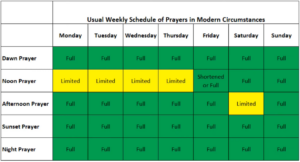 The green squares represent the cases where a typical person today would do the Contact Prayer fully, and the yellow squares represent the cases where it might usually happen for that person to do the Contact Prayer in a limited version. And as you can see, the vast majority of cases are green, which means that that believer will do the vast majority of his prayers fully, and the fact that a few cases are yellow is not a problem, because prayers are the meals for our souls, and Limited Prayers are like snacks which you eat on the road, while the full Contact Prayers are like proper meals. Now, if we eat snacks only about 10% of the time, today, that shouldn’t be a problem. We could still be healthy. And, there is no reason to be concerned about this because God was aware of this situation, and He has clearly mentioned this situation in the Quran. What we need to worry about really, is not to miss prayers without excuses when we are at home. When we are believers, we will never miss a prayer because we are watching a movie. We can pause the movie. We should never miss a prayer, because we are talking on social media. Social Media can wait. We should never miss a prayer, because we ate too much, and now we are sleepy. These are inexcusable cases. But regarding prayer outside of our homes, and outside the mosque, God has given us full permission, and actually an order to do them in the Limited Version. The limited version, again, means that wherever we are at that moment, let’s say in your office chair, or your car chair, you simply repeat the words of the Contact Prayer in your mind, mentally, and that’s it. And by the way, you don’t even need to perform ablution when you perform the Limited Version. God does not mention the word Salat in that verse. The verse simply says “on foot, or sitting”, but it does not call it “Salat”. And because it is not technically Salat, there is no need for ablution. The Limited Prayer is a substitution for Salat in that case, but it’s not Salat. And the most important thing is to remember God, because verse 20:14 says that the main purpose of the Contact Prayer is to remember God, and if you do remember God in the Limited Version of the Contact Prayer, you are fulfilling the main purpose of the Contact Prayer..
The green squares represent the cases where a typical person today would do the Contact Prayer fully, and the yellow squares represent the cases where it might usually happen for that person to do the Contact Prayer in a limited version. And as you can see, the vast majority of cases are green, which means that that believer will do the vast majority of his prayers fully, and the fact that a few cases are yellow is not a problem, because prayers are the meals for our souls, and Limited Prayers are like snacks which you eat on the road, while the full Contact Prayers are like proper meals. Now, if we eat snacks only about 10% of the time, today, that shouldn’t be a problem. We could still be healthy. And, there is no reason to be concerned about this because God was aware of this situation, and He has clearly mentioned this situation in the Quran. What we need to worry about really, is not to miss prayers without excuses when we are at home. When we are believers, we will never miss a prayer because we are watching a movie. We can pause the movie. We should never miss a prayer, because we are talking on social media. Social Media can wait. We should never miss a prayer, because we ate too much, and now we are sleepy. These are inexcusable cases. But regarding prayer outside of our homes, and outside the mosque, God has given us full permission, and actually an order to do them in the Limited Version. The limited version, again, means that wherever we are at that moment, let’s say in your office chair, or your car chair, you simply repeat the words of the Contact Prayer in your mind, mentally, and that’s it. And by the way, you don’t even need to perform ablution when you perform the Limited Version. God does not mention the word Salat in that verse. The verse simply says “on foot, or sitting”, but it does not call it “Salat”. And because it is not technically Salat, there is no need for ablution. The Limited Prayer is a substitution for Salat in that case, but it’s not Salat. And the most important thing is to remember God, because verse 20:14 says that the main purpose of the Contact Prayer is to remember God, and if you do remember God in the Limited Version of the Contact Prayer, you are fulfilling the main purpose of the Contact Prayer..
